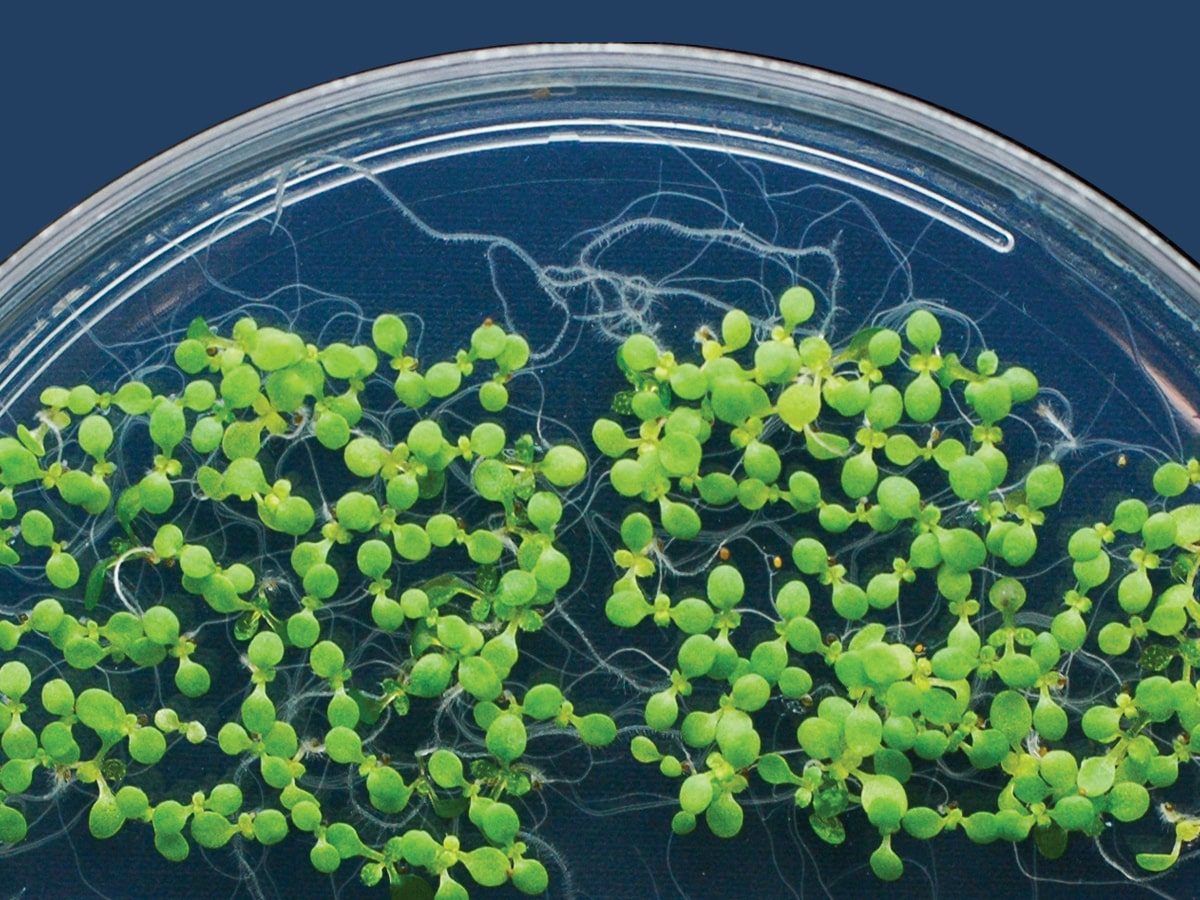
Evolutionary development, also known as Evo-Devo, is a fascinating field of study that explores the intricate relationship between evolution and the development of organisms. It delves into the remarkable processes that shape the diverse forms and functions found in living beings. By examining the genetic and developmental mechanisms that drive evolutionary change, Evo-Devo provides valuable insights into the origins and transformations of life on Earth.
In this article, we will delve into 13 extraordinary facts about evolutionary development that showcase the complexity and marvels of this field. From the evolution of limbs to the emergence of complex organs, these facts highlight the incredible adaptability and innovation displayed by living organisms throughout history. So, let’s embark on a journey through the world of Evo-Devo and uncover the secrets of how life has evolved and flourished!
Key Takeaways:
- Evo-Devo combines genetics and development to understand how organisms have evolved and diversified, challenging traditional evolutionary theories and shedding light on the origin of new traits and body plans.
- By studying the genetic and environmental factors shaping development, Evo-Devo offers insights into the evolution of complex structures and has implications for medicine and human development.
Evo-Devo explores the links between evolution and development.
Evo-Devo is a field of study that investigates the genetic and cellular mechanisms underlying the development of organisms, and how these processes have evolved over time.
It combines insights from evolutionary biology and developmental biology.
Evo-Devo brings together the principles of evolution and development to provide a deeper understanding of how organisms have evolved to exhibit such diverse forms and structures.
Evo-Devo focuses on the role of genes in shaping development.
Genes play a crucial role in directing the development of an organism, and Evo-Devo studies how changes in gene expression can lead to the evolution of new traits and body plans.
It challenges traditional evolutionary theories.
Evo-Devo has revolutionized our understanding of evolution by highlighting the importance of development in driving the processes of natural selection and adaptation.
Evo-Devo provides insights into evolutionary novelty.
By studying the development of organisms, Evo-Devo offers valuable insights into the origin of new structures and functions that may have contributed to evolutionary innovation.
It has uncovered the deep genetic similarities among organisms.
Evo-Devo research has revealed that many fundamental genetic processes and pathways are conserved across a wide range of species, highlighting the shared ancestry of all living organisms.
Evo-Devo studies the evolution of body plans.
By comparing the development of different organisms, Evo-Devo seeks to understand how variations in genetic regulation have led to the astonishing diversity of body plans seen in the animal kingdom.
It has shed light on the evolution of complex structures.
Evo-Devo has provided insights into the step-by-step processes by which complex structures, such as limbs or eyes, have evolved from simpler ancestral forms.
Evo-Devo explores the role of environmental factors in development.
The field recognizes that environmental influences and interactions with the surrounding ecosystem can shape the developmental trajectories of organisms, leading to adaptive changes and diversification.
It has implications for medicine and understanding human development.
The principles of Evo-Devo have implications in fields such as medicine, as insights from studying evolutionary development can aid in understanding human developmental disorders and the evolutionary origins of certain diseases.
Evo-Devo research is interdisciplinary.
Evo-Devo brings together scientists from various disciplines, including genetics, evolutionary biology, developmental biology, paleontology, and ecology, to gain a holistic understanding of the evolutionary processes shaping life on Earth.
It has led to the discovery of highly conserved developmental genes.
Evo-Devo research has identified certain genes and genetic pathways that are remarkably conserved across different species, emphasizing their crucial roles in development and evolution.
Evo-Devo is an ever-evolving field.
As new technologies and techniques emerge, our understanding of evolutionary development continues to deepen, unraveling more mysteries about the intricate relationship between genes, development, and evolution.
Overall, the 13 Extraordinary Facts About Evolutionary Development (Evo-Devo) demonstrate the remarkable insights and discoveries that have been made in this field of study. From uncovering the genetic basis of development to challenging traditional evolutionary theories, Evo-Devo has revolutionized our understanding of how organisms have evolved and diversified over millions of years. By integrating concepts from both evolutionary biology and developmental biology, Evo-Devo provides a comprehensive framework for exploring the origins of life’s incredible diversity.
Conclusion
In conclusion, evolutionary development, or Evo-Devo, is a fascinating field of study that sheds light on the remarkable processes behind the formation and diversification of life on Earth. By combining the principles of evolution and developmental biology, scientists have uncovered astonishing insights into the intricate mechanisms that drive the development of organisms.Throughout this article, we have explored 13 extraordinary facts about Evo-Devo. We discovered how Hox genes play a crucial role in shaping the body plans of animals, how ancient fish helped pave the way for the evolution of limbs, and how the diversification of butterfly wing patterns is driven by developmental genes. We also learned about the remarkable regenerative abilities of certain organisms and the role of gene regulatory networks in shaping evolutionary trajectories.Evo-Devo has revolutionized our understanding of how complex organisms arise from a single fertilized egg and how variations in morphology and function arise through genetic changes. This field continues to uncover amazing insights into the origins of life’s diversity and has implications not only for scientific understanding but also for applications in medicine and biotechnology. As our understanding of evolutionary development deepens, we can look forward to even more remarkable discoveries in the future.
FAQs
1. What is Evo-Devo?
Evo-Devo is a field of biology that combines the principles of evolution and developmental biology to study the genetic and molecular mechanisms underlying the formation and diversification of organisms.
2. How does Evo-Devo contribute to our understanding of evolution?
Evo-Devo helps us understand how changes in developmental processes and genetic regulation can lead to evolutionary changes in morphology, anatomy, and behavior over long periods of time.
3. What are Hox genes and why are they important in Evo-Devo?
Hox genes are a group of developmental genes that control the body plan of an organism. They play a crucial role in determining the arrangement and identity of body segments during embryonic development.
4. How does Evo-Devo explain the origin of complex structures like limbs?
Evo-Devo suggests that modifications in the expression and regulation of developmental genes, such as the activation of Hox genes in different regions of the embryo, can lead to the evolution of new structures like limbs.
5. Can Evo-Devo explain how organisms regenerate lost body parts?
Yes, Evo-Devo provides insights into the genetic and molecular mechanisms that enable certain organisms to regenerate lost body parts, such as the ability of salamanders to regrow their limbs.
6. What are gene regulatory networks and how are they involved in Evo-Devo?
Gene regulatory networks are complex systems of interacting genes that control the expression of other genes during development. They play a crucial role in coordinating the complex processes of cell differentiation and tissue formation.
7. How does Evo-Devo contribute to fields outside of basic research?
Evo-Devo has practical applications in fields like medicine and biotechnology. Understanding the genetic basis of development can help in the development of new therapies and the improvement of crops and livestock.
These FAQs provide a glimpse into some of the common questions surrounding Evo-Devo. However, this field is constantly evolving, and there is much more to discover about the intricate processes that drive evolutionary development.
Evo-devo's extraordinary facts reveal evolution's captivating mechanisms, from genetic similarities among organisms to the development of complex structures. Unraveling these mysteries is an ongoing journey, as researchers continue exploring life's astonishing diversity. For more enthralling insights into our planet's history, consider diving into the Mesozoic Era's fun facts, where dinosaurs roamed and ecosystems flourished.
Was this page helpful?
Our commitment to delivering trustworthy and engaging content is at the heart of what we do. Each fact on our site is contributed by real users like you, bringing a wealth of diverse insights and information. To ensure the highest standards of accuracy and reliability, our dedicated editors meticulously review each submission. This process guarantees that the facts we share are not only fascinating but also credible. Trust in our commitment to quality and authenticity as you explore and learn with us.


